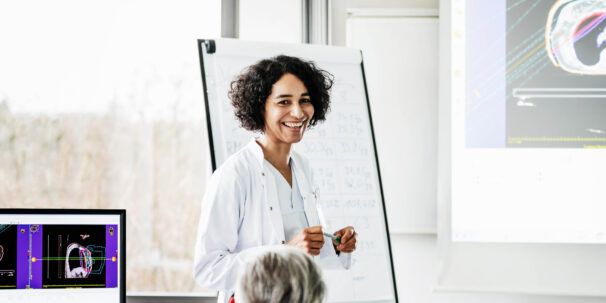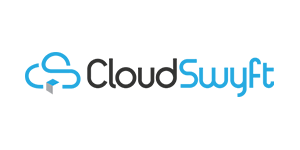Top five data analytics courses in healthcare
How does data analytics benefit the healthcare industry? Keep reading to find out, and discover our top five data in healthcare courses.

The modern world is filled with oceans of data. Every day, millions of purchasing decisions, medical diagnoses and physical phenomena are recorded and logged. We’ve blogged about data analytics and their importance to business – but they can also be valuable in a healthcare setting.
Healthcare now relies on a range of modern innovations, as outlined in our blog on the future of healthcare technology, including AI, the Internet of Things, and mobile apps.
Modern healthcare isn’t just about providing treatment to patients. It’s also about allocating medical resources appropriately, and with the help of the right data analytics, this can be done effectively.
Let’s look at what data analytics is, how it works, and how healthcare can benefit from it. We’ll also take a look at the top five data analytics courses in healthcare, so you can get started in this exciting field today.
What is data analytics?
Data analytics is an important part of the scientific method. In the modern world, with access to vast amounts of data, data analytics tends to be associated with crunching numbers and uncovering underlying trends.
To give a healthcare example, it can be used to look for causal links between certain lifestyles and specific medical outcomes. We can also determine the point at which a particular kind of patient is likely to stop seeking treatment, and whether they ultimately deteriorate or recover.
If you’d like to learn more, our introduction to data science provides a deeper exploration of big data and what it can do. Since data is such a new and rapidly-growing industry, it’s pretty easy to lose track of some of the terminology. We’ve cleared up some of the confusion in our blog on the differences between data analytics, machine learning and AI.
What does a data analyst do?
A data analyst is a professional who collects, presents and interprets data. They’ll often use data to answer specific questions.
Data analysts fall into various niches, including data security, data science, and data management. We’ve touched on the differences between these niches in our blog on the data industry in detail.




What is the role of data science in healthcare?
So, how does all of this apply in the healthcare industry? Let’s take a look at a few key functions performed by data science.
Processing
Healthcare is, at its core, a series of processes. Patients are examined, diagnosed, and treated – often with the help of specialists and rounds of follow-up treatment. Today, there are many processes involved that are very intricate, and data science can help to analyse and optimise them.
Confidentiality
All healthcare providers, including the NHS, collect personal data from patients. This data must be kept securely for legal and ethical reasons. A good grounding in data science should include how the data can be securely stored, which helps to avoid breaches and ensure that confidentially is respected.
Development
By analysing data, the medical industry can understand the needs of patients and use this information to develop superior products and methods. This is especially valuable in the world of preventative medicine. Through wearable devices, patients can understand their risk of certain kinds of medical problems and interventions can be made more quickly.
Reporting
Medical institutions occasionally need to share information with one another, or with the wider public. Data analytics enables these figures to be presented in an easy-to-understand way. That means intuitive charts and visualisations, but also concise analyses and briefings.
Healthcare data analyst jobs
As we mentioned in our article on the data science insights from 2021, this is a rapidly growing industry. Projections from Statista puts the global big data market as worth more than a hundred billion dollars by 2027. Similarly, the healthcare industry is growing and information analysts specialising in medicine are in high demand.
With the right skill set, you can work in any of the following niches:
- Clinical data analytics
- Pharmaceutical data analytics
- Behavioural and sentiment data analytics
- Claims and costs data analytics
- NHS data analyst jobs
How to become a healthcare data analyst
The clearest path to becoming a data analyst in the healthcare industry is to build the right skills and knowledge. This means getting the right degree and the right specialist certification. If you already have experience in a related field, then you’ll give yourself a better chance of getting your foot in the door.
For example, you could work with big data outside of medicine before seeking a position in healthcare. Or, you could supplement your existing healthcare skillset with training in data analytics — opening up a new area of the industry to you.
Qualifications needed to become a data analyst
Data analytics doesn’t demand any particular degree. A strong degree in a related field, though, will enhance your chances of getting into the profession. These could include degrees in computer science, economics and mathematics.
Study data analytics in healthcare
You might be a data analyst looking to break into the healthcare industry. You might be a healthcare professional looking to work their way around a dataset. You might be new to both, and looking to start from the ground floor.
Whatever your starting point, there’s an online course to help you expand your skillset. An online course in data analytics will give you the flexibility to learn alongside your existing commitments, fitting easily into your schedule.




Top 5 data analytics courses in healthcare
Let’s take a look at a few of the standout courses that will help you grow your understanding of data analytics in healthcare.
1. AI and Big Data in Global Health Improvement by Taipei Medical University
Among the more exciting trends in data analytics is the increased prominence of artificial intelligence. Machine learning techniques allow us to crunch huge datasets and spot trends and correlations that simply wouldn’t be visible using traditional methods.
If you’re going to have a career in data analytics over the coming years, then a strong grasp of AI and big data is indispensable. This course does exactly that, while introducing Observational Health Data Sciences and Informatics (OHDSI) and how AI has aided the response to COVID-19 in Taiwan.
The right AI can reduce medical error, improving patient outcomes. It’s causing considerable excitement in radiology departments, where it promises to lead to much earlier diagnoses. This is explored in Artificial Intelligence to Improve Patient Safety, an open step from the course.
2. Protecting Health Data in the Modern Age: Getting to Grips with the GDPR by the University of Groningen
In May 2018, the European Union implemented its General Data Protection Regulation. It was a landmark piece of law designed to bring data privacy laws into alignment across member states. In the UK, it’s implemented via the 2018 Data Protection Act, which requires everyone storing personal data to abide by certain principles.
If you’re working with other people’s data, then it pays to know where you stand legally. You can get a flavour of what’s discussed with the help of an open step on sensitive data and medical confidentiality. This course helps you understand the role of data protection, while also highlighting the ways that data can be collected.
Today, a great deal of data is collected through apps and wearable devices. You can also learn about the sharing and transferring of health data on this course, and find out how we can make sure that it’s legal and ethical.
3. Collecting and Using Data for Disease Control and Global Health Decision-Making by John Hopkins University and STRIPE
The near-eradication of poliomyelitis (or polio) is one of the great success stories of modern medicine. A truly horrible disease, it can cause permanent paralysis in victims. As recently as the 1980s, the disease was infecting hundreds of thousands of people every year. But thanks to a rollout of an effective vaccine, this number has been reduced to just hundreds.
So, what can we learn from this effort? Quite a lot, it turns out. This course explains how the data on polio was collected and analysed. It’ll give you the tools to help roll out vaccines and other vital medical care to the world’s more remote regions.
4. Process Mining in Healthcare by Eindhoven University of Technology
This course covers not just the processes involved in steering patients to recovery, but important processes that lead to patient success, like supply chain optimisation and bed management.
Optimising these processes can ultimately deliver a healthcare system that works more effectively. That’s where process mining comes in. This is a technique that lets us break down processes and see how they work. In this course, the relevant techniques are broken down and explained.
For those looking for an introduction to process mining and what it looks like, the Process Mining in Healthcare open step is a great place to start. If you’d like to know exactly why the practice is so powerful and worthwhile in a healthcare setting, take a look at another open step: opportunities for process mining in healthcare.
5. The Power of Data in Health and Social Care by the University of Strathclyde, the Data Lab, UrbanTide, and Digital Health & Care Innovation Centre
Looking for a more comprehensive overview of data science and how it can be applied to healthcare? Find it in this all-encompassing course. Though it’s aimed at management staff working throughout the health and care industries, it can benefit just about anyone working in medicine or a related field.
The course provides a glimpse into many of the data science topics we’ve covered. You’ll learn about everything from GDPR legislation to effective communication of your analyses. As such, it’s a broad base from which to build your knowledge of a broad subject!
Final thoughts
In the modern era, we’re able to collect more data than ever before. Every given interaction between patient and doctor can yield valuable insights. This goes for everything from a simple phone call, to formal consultation and surgical intervention.
We can use the data we gather to deliver a superior standard of healthcare. But this only goes if we’re able to interpret the data correctly. Through modern data analytics, we can ensure better outcomes for patients. If you’re working in healthcare, or you aspire to, then one of these courses will get you started on the right path!









